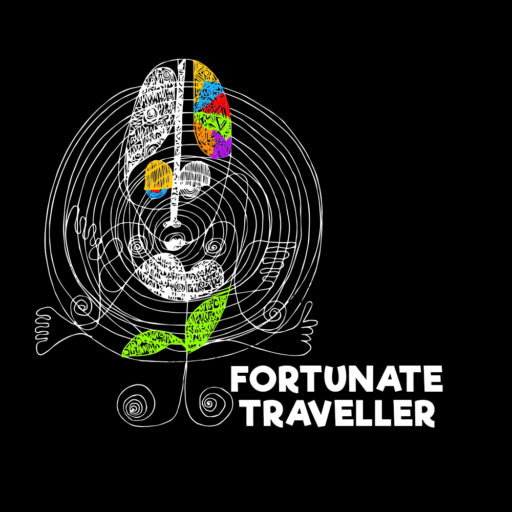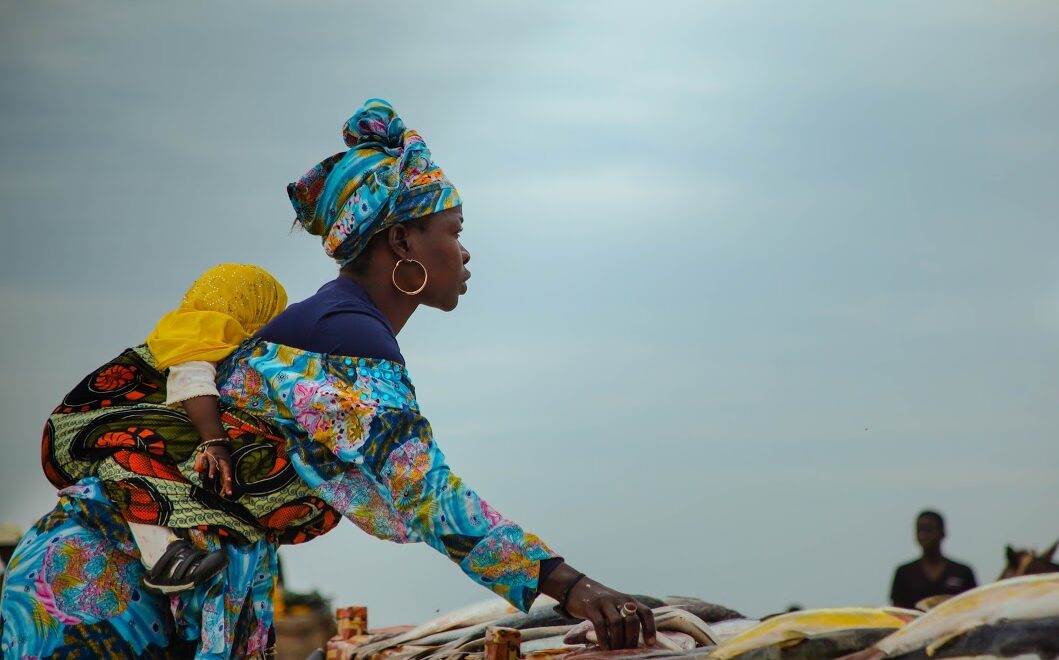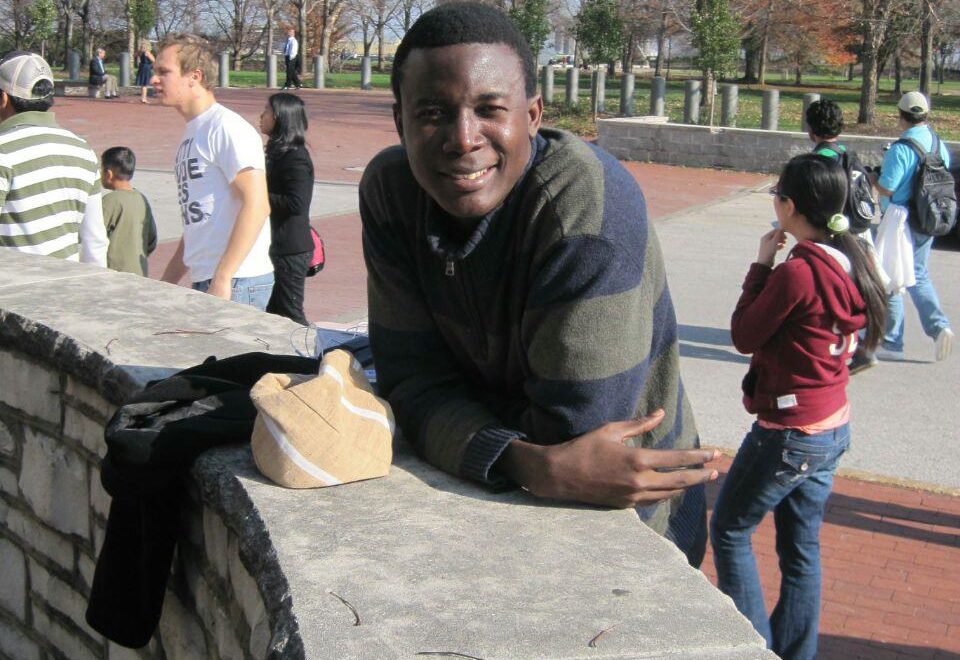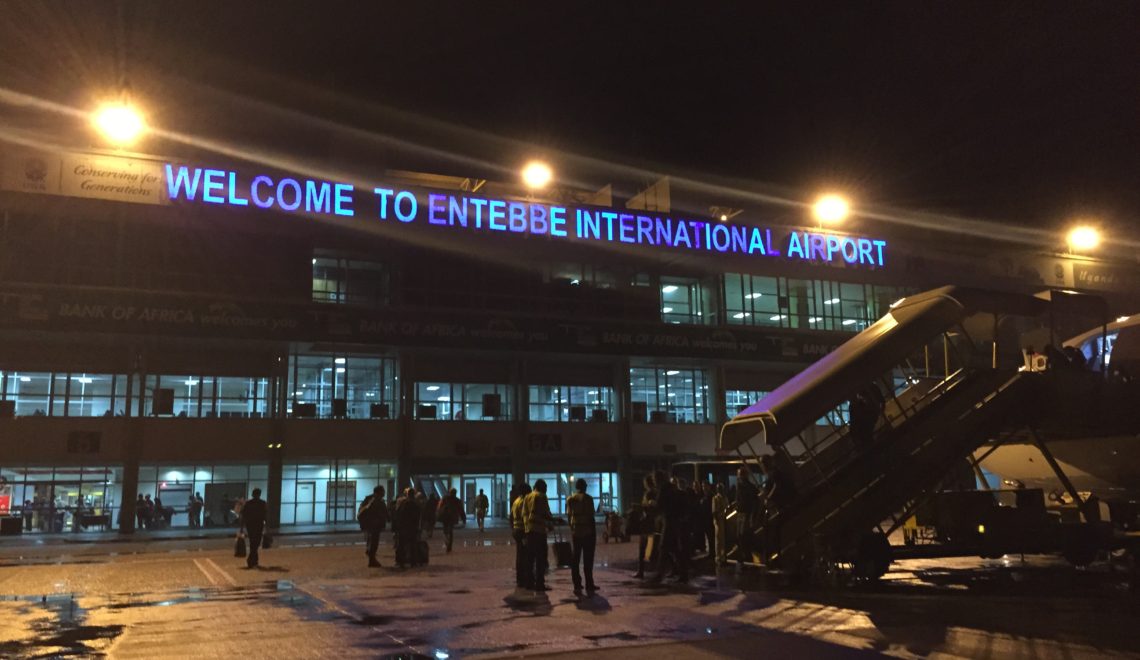
The flight from Lagos stopped over at Kigali, Rwanda, and from there we flew onward to Entebbe, Uganda where we arrived on the anniversary of the Israeli Defense Force raid on Entebbe. Benjamin Netanyahu, the Israeli Head of State who lost a brother, Yonatan ‘Yoni’ Netanyahu, in that raid was marking the anniversary of the raid and making heavy weather of it. So, from the beginning, this visit to Uganda was steeped in history and a certain vestigial sense of spectacle and drama.
But it isn’t the history of Entebbe that is played up, or of Uganda. It is the history of the world in which Uganda merely plays a cameo part through an unlikeable character called Idi Amin. The mention of that name has become something of a cliché around the world, a mill tied around Uganda’s neck – though some will disagree. I set foot on Ugandan soil, Ugandan tarmac actually, determined to discover as much of the history of the place as I could in a week.
There was mild drama at the airport. Nigeria and Uganda have a mutual visa-on-arrival policy and I came in prepared to pay the $50.00 visa fee at Entebbe only to find out that Ugandan authorities won’t accept a dollar note older than 2006. The note I had on me was a 2003 note. What to do? I called my host, Dr Danson Kahyana of the Literature department at Makerere University. It was 11 p.m. local time. The superintending immigration officer was a mature and understanding man. He made the call from his cellphone. Apparently, there was another gentleman from Ghana in the selfsame situation; we were in Uganda for the same conference. We waited. Time passed. Past midnight. Rescue. 2013 $50.00 notes and Open Sesame! Modern life and travel within Africa is negotiated through minor ironies like these. To cross African borders, we placate guardians at the border posts with extraverted currencies.
We left the airport at minutes past midnight for Kampala. The ride should take about forty minutes at this time but the national football team had pulled a major feat by qualifying for the African Cup of Nations after a grueling match with a ferocious North African team against which the country had never won a match before. The highway was so busy at a quarter of an hour after midnight that I was forced to ask if this was normal in Uganda? The taxi driver patiently explained the local context and I understood. Religion, in Africa, is rapidly assuming second place to football as an opiate of the people. Shareholders in Ugandan breweries have a lot to be thankful for after every national football team victory, from what I could see.
The taxi eventually made it past the busiest portions of Entebbe and we made it to the highway linking Entebbe to Kampala. It was a cool morning, a cold morning, actually, coming from steamy, 35 degrees Celsius Lagos. I wound up the window nearest to me. ‘Lake Victoria.’ The taxi man ventured. I looked over to my right and saw the vast lake, what could be seen of it without the sun. I felt the cold from the nostrils of the lake much more tangibly than what my eyes told me of the lake. I got curious. ‘What is the indigenous name of the lake though?’ I asked. It was as if the cab man was expecting the question. ‘Nalubale.’ He said. I repeated the noun as best as I could and followed up with another question. ‘What does the name mean?’ Again it was as if the taxi driver was expecting the question. ‘There was a stone.’ He said.
‘There was a stone.’ I repeated these words in my mind and wondered whether the lake formed on a crater from a meteorite. The fact that the indigenes named the lake after a stone intrigued me. A stone that was history. A stone that evaporated? There must be geologists who know the geological history of the lake and I made a mental note to scour the internet for what might be available. For now, it sufficed that I may have found linguistic evidence of extra-terrestrial impact close by. Lakes formed after meteorite impact are not uncommon. In Tallberg, Sweden, there is one beautiful lake formed precisely this way. It turned out that there were many local names for the lake and its formation took a different trajectory.
We arrived Kampala and our hotel, Forest Cottage, an hour after leaving the airport. It was too late for dinner in the three-star affair and too early for breakfast, so off I went to bed with an apple in my hand. The spacious suite had two beds and each had mosquito nets hanging above it. I remembered reading that strains of malaria in this region differed slightly from what I was used to in Nigeria. So I let a net down and tucked myself in for a voluptuous nap in the crisp and quiet bed.
Lugard was here
The next morning I joined other conference attendees at breakfast. East Africa has a rich offering of vegetables and fruits to go with breakfast and I availed myself of them all. I also noticed a large presence of European and American tourists. It was understandable. The country had a great climate, thriving wild reserves and a relatively stable economy. I checked the temperature according to Google and it was 17 degrees Celsius.
The political history of Uganda was like my own back home in Nigeria. Both countries were colonies of Britain. Indeed, both were ‘pacified’ by the same fellow, Frederick Lugard, on behalf of the crown. Both countries have witnessed wars traceable to the same ethnic tensions after colonialism officially ended. Policemen went about with Kalashnikovs. I think the similarities end here. There is a palpable sense of a determination to be a modern economy in Uganda of 2016. I couldn’t hear a diesel electricity generator here like I would back home. The indigenes made sure to be courteous and correct in their communication with me. When I went with the conference crowd to inner city Kampala, I couldn’t help but notice the number of women civil engineers working on Ugandan roads, taking levels, looking through theodolites and directing workmen. There were women as qualified in Nigeria but you would have to search extensively to see them at work in this way.
There was one other difference that might go unregistered if one is not Nigerian: traffic was as crazy here as it was in Ibadan, there were huge numbers of commercial motorcyclists called boda-bodas in Uganda (Okadas back home in Nigeria) and they made life hell for the traffic wardens. The English expression that I think described the efforts of the wardens was ‘herding cats’. It was tough business. Back home in Nigeria, major cities regulated the routes commercial motorcyclists could ply but that wasn’t workable here and might not be for a while.
When the conference’s buses made it into the Makerere University campus, the first oddity I observed was a riot geared detachment of policemen just after the entrance. We were informed that this was nothing to be alarmed about. Perhaps. We went up to the structures hosting the humanities. Old and new buildings but generally built to purpose. I began to see why some of the attitudes I had observed earlier were common to Ugandans. It isn’t just that Makerere is older than any Nigerian university, it is, I think, because there is an ambience far less chrematistic than what one finds on Nigerian university campuses. We moved to the conference venue on the last floor of a four storey building; the lift was out of service though there was electricity. Our host apologized. I joked that the facility manager had decided to go into Pentagon mode: the Pentagon building is reportedly without a lift, so that officers and gentlemen can maintain daily fitness climbing stairs.
Speed and hotheads
The conference manager welcomed everyone and handed out the password to the Wifi portal we’d be using while there. She apologised ahead if we found it slow. But it wasn’t slow. In fact it was blazing fast for a Nigerian who never got the kind of speed here on 4G platforms at home. I could get used to this. The last place I had this kind of speed on my device was in South Korea.
Throughout my stay in Kampala I noted the Wifi connection speeds at the hotel, at the restaurants, the Goethe Institute downtown, the university. It was faster than even what one got in South Africa and that was some comfort.
I attended a couple of readings in the city of which the reading at Goethe’s, with an all-female writer cast, made the most impression. The dominant discourse was feminism and the various incarnations it has seen. I was impressed with the lucidity which most of the proponents brought to their subject although a few hotheads made their presence felt as well. The hotheads were wont to say things like ‘Men are trash!’ And the chuckles rippling throughout the audience could mean anything from ‘Yeah’ to ‘Pop is trash?’
Night life
I went with some adventurous colleagues to a nightclub down the road from the Cottage. The name, La Cayenne, suggested it might be hot but it proved to be quite relaxed with superb live band music and seafood. I mention the seafood here because it was gorgeous.
Noise is regulated in Kampala. The whole stretch of the wall where we sat was dampened for sound. The speakers were strategically placed and the sound ‘piped’ in such a way that the two music bands at opposite ends of the club could perform without disturbing their respective audiences. I wished my city had sound engineers like they had here.
I made a promise to myself to revisit this club when next I visit Kampala.
The snout of an earthquake
A week isn’t enough to know a city like Kampala. The Guaranty Trust Bank building I saw in Kampala was fenced like a prison, unlike what obtained in Nigeria where these banks have open architecture throughout. The teeming population of Kampala all the time reminded me of Ibadan, but I also realized that the ubiquity of firearms here meant that Ibadan has a familiar relationship with peace which Kampala hasn’t quite achieved yet.
The men and women I met at the university and at literary readings had a sense of Uganda I envied. I cannot say I have the same sense of Nigeria. I didn’t know why this was so until I left Uganda.
The news feed coming into my tablet in Kigali Airport said an earthquake of some magnitude had struck near Kampala minutes after I left. Aftershocks were felt in parts of Rwanda. It was then I recognized the loyalty I sensed in the Ugandan more clearly. It was something one sensed in the Japanese as well. Though the crusts of the Earth shift, though stones from space strike, the people remain. The people will remain. This was their resolve. I wanted some of that.
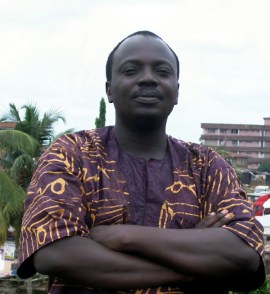 Tade Ipadeola is a poet, practising lawyer, literary critic and translator. In 2009, he won the Delphic Laurel in Poetry for his Yoruba poem ‘Songbird’ at the Delphic Games in Jeju, South Korea. Also, in 2013 his third volume of poetry The Sahara Testaments won the prestigious Nigeria Prize for Literature instituted by the Nigeria Liquified Natural Gas (NLNG). Ipadeola is the President of PEN Nigeria Centre. He lives in Ibadan.
Tade Ipadeola is a poet, practising lawyer, literary critic and translator. In 2009, he won the Delphic Laurel in Poetry for his Yoruba poem ‘Songbird’ at the Delphic Games in Jeju, South Korea. Also, in 2013 his third volume of poetry The Sahara Testaments won the prestigious Nigeria Prize for Literature instituted by the Nigeria Liquified Natural Gas (NLNG). Ipadeola is the President of PEN Nigeria Centre. He lives in Ibadan.
